- Home
- Helen Dunmore
The Lie
The Lie Read online
Contents
About the Book
About the Author
Also by Helen Dunmore
Title Page
Epigraph
Chapter 1
Chapter 2
Chapter 3
Chapter 4
Chapter 5
Chapter 6
Chapter 7
Chapter 8
Chapter 9
Chapter 10
Chapter 11
Chapter 12
Chapter 13
Chapter 14
Chapter 15
Chapter 16
Chapter 17
Chapter 18
Chapter 19
Chapter 20
Chapter 21
Acknowledgements
Copyright
About the Book
Cornwall, 1920
A young man stands looking out to sea.
Behind him the horror of the trenches, and the most intense relationship of his life.
Ahead of him the terrible unforeseen consequences of a lie.
About the Author
Helen Dunmore is an acclaimed bestselling author who has published nine novels, including Zennor in Darkness, which won the McKitterick Prize; A Spell of Winter, which won the inaugural Orange Prize; The Siege, which was shortlisted for the Whitbread Novel of the Year Award and for the Orange Prize; Mourning Ruby, House of Orphans and Counting the Stars. Her 2010 novel The Betrayal was longlisted for the Man Booker Prize and shortlisted for the Orwell Prize. In 2012 she published the novella The Greatcoat under the Hammer imprint at Cornerstone. She is also a poet, children's novelist and short-story writer. She is a Fellow of the Royal Society of Literature, and her work is translated into more than thirty languages.
ALSO BY HELEN DUNMORE
Zennor in Darkness
Burning Bright
A Spell of Winter
Talking to the Dead
Your Blue-Eyed Boy
With Your Crooked Heart
The Siege
Mourning Ruby
House of Orphans
Counting the Stars
The Betrayal
The Greatcoat
The Lie
Helen Dunmore
If any question why we died
Tell them, because our fathers lied.
Rudyard Kipling
1
The use of veils and coats of a colour to match the background is useful. If near sandbags, an empty sandbag worn over the head is a good disguise. Against an earth background a brown gauze veil, against grass a green one are both difficult to detect. Grass, weeds, wood or branches may give concealment.
HE COMES TO me, clagged in mud from head to foot. A mud statue, but a breathing one. The breath whistles in and out of him. He stands at my bed-end. Even when the wind is banging over the roof that I’ve bodged with corrugated iron, it’s very quiet. He doesn’t speak. Sometimes I wish that he would break the silence, but then I’m afraid of what he might say. I can smell the mud. You never forget the reek of it. Thick, almost oily, full of shit and rotten flesh, cordite and chloride of lime. He has got himself coated all over with it. He’s camouflaged. He might be anything, but I know who he is.
I light my candle and get out of bed, because I know I won’t sleep again. The wind bangs, and behind it I hear the sea booming at the base of the cliffs. It’s night, but I can still work. I light my lantern and get out needle and thread from the sewing box Mary Pascoe left to me. My trousers want patching. They are good, heavy corduroy, worn thin at the knees. I may not be nimble at sewing, but I can get the job done. They want leather patches but I haven’t got leather, so I use cloth from inside the pockets. I sew the patches all around, as firm and as neat as may be. I look at my work and then I go round again until I am sure that the patches will hold.
When I look up out of the dazzle of stitches, he’s gone. At the foot of my bed there’s nothing but the heavy pine box with Mary Pascoe’s initials burned into it. The box was black with smoke, but I’ve scoured it.
I think about how he comes. Does he displace the box? Is he in it, or is it in him? I shouldn’t think of it. It makes my mind dazzle, like my eyes.
Tomorrow I’ll plant main-crop potatoes. I’ve prepared the ground. In October, soon after I came here, I dug the earth deeply and then covered it with rotted seaweed from the pile that Mary Pascoe carried up from the shore, when she was still able. She said that seaweed made the potatoes grow clean of disease. My seed potatoes lie ready in their trays, sprouting. The sprouts are strong.
Frederick. I can say his name aloud now, without danger. He won’t come again tonight. I have thought that if he ever came by day, I’d take him to the horse-trough in the next field and wash him until white flesh appeared. Or he could stand by the stream while I poured water over him, bucket after bucket. It would be like taking new potatoes out of the soil. But I know that he’d be back again the next night, with the mud still on him. It never dries or forms a crust. It is always wet and shining, like the eyes of a rat in the back of a dugout. He’s been out there in the wind and rain, rain sluicing over him, turning the land to mud that can drown you.
A man stuck in the mud can’t free himself. He needs two men to help him. You lay a piece of wood down on either side of him. You work him out, one boot at a time. It’s a slow job. Often there isn’t time and you have to leave him. Usually it’s not that the mud is so deep. It doesn’t come above his knees but he can’t free himself, and if he loses his balance and tips forward, he will drown. You hear the cries of men caught like that. But that was later. Frederick died before the worst of the mud.
I have a calendar on my wall and I mark off the days. I keep records of how many rows I’ve planted: early potatoes, turnips, carrots, beetroot, spring cabbages and all the rest. This mild spring has made the earth soft and ready. I’ve planted gooseberry bushes, because they’ll stand the wind. Mary Pascoe made hedging around her vegetable patch. She didn’t look after her cottage: she stuffed her windows with rags and let birds nest in the chimney, but she always knew how to make her bit of land feed her. She left me the cottage and the land around it, which maybe never belonged to her at all, but which she’d made her own. Why shouldn’t she have her bit of land, my mother used to say, when there’s others that own half the county? Mary Pascoe left me her goat and her chickens. She used to keep a pig, she said, but I don’t remember that.
I knew her more than the other children did, because of my mother’s friendship for her. I’d see her striding into town, with a basket of eggs on a strap. Sometimes, Frederick and I met her on the shore, picking mussels, when we were walking out to Senara or beyond. Me and Frederick, side by side, swinging out. We had bread and cheese in our pockets, and he might have brought chocolate, or a handful of plums. He shared between us so easily that you couldn’t tell what was his and what was mine. I never met anyone else who had that gift, until I was in the army. We had poetry books, or rather Frederick brought them from his father’s library, and I read them. Frederick was going to be a lawyer. He’d stayed on at school, gone upcountry to Truro for his education, and then farther still to boarding school.
I left school when I was eleven, a year before I ought to have done, but in the circumstances a blind eye was turned. My mother needed my wages. She had no other family to provide for her. For years, when I was a child, she went out to clean in the big houses: Lezard House, four or five of the houses along The Row, Carrick House in the summer season, when the family that owned it were down from London. When I was ten she had rheumatic fever, and after that she hadn’t the strength for cleaning. She was soon out of breath walking uphill, no matter how slowly she went. Sometimes she had to lean on me. I hated it. I’d like to think I gave her my arm willingly, but the truth is
that her weakness frightened me, and made me ashamed of us, the two of us, when I wanted to be proud. Bolts of shame would go through me as we struggled up the hill, like flies in milk.
I remember how I knelt on the bare boards of the bedroom, on the night my mother was so ill that she didn’t know I was in the room. I’d never known her not to come to me at the lightest sound, if I woke from a bad dream. But now she didn’t know me. Her eyes went beyond me. She was talking all the time, in a low quick mutter, but not to me. I heard my father’s name and my grandmother’s. She cried out for them once, her voice rusty and tearing, and she tried to heave herself off the pillow, but Mrs Jelbert held her. I sank down to the floor, and pressed my face into the quilt. All the prayers I’d ever been taught jumbled in my mouth.
‘You go on downstairs, boy,’ said Mrs Jelbert, but I couldn’t. ‘Don’t you fear, my chiel. We’ll slock ’er round.’ I was beyond believing her. A black wind of terror blew through me and I prayed for my mother until sweat trickled down my back. No one answered me, nothing spoke.
Mrs Jelbert sent a boy for Dr Sanders. He came that night, and stayed until morning. He refused to let her die, even though it was clear that she had left us in her mind. She was with those other ones, those ghosts I’d barely known but who called her more strongly than my own voice could call her. But Dr Sanders wouldn’t let her stay with them. He bent over her, hauling her back, hurting her I thought from the way she cried out.
I’m not sure that my mother ever came back again, truly, but she was good at pretending. She got better. All through, Dr Sanders treated her for nothing, and afterwards he bestirred himself to find work for me, and settled it with school that I was to leave early. I was taken on as gardener’s boy at Mulla House, two miles’ walk from the town.
‘You’re the man of the house now, Daniel,’ Dr Sanders said to me.
The doctor called me Daniel in deference to my mother’s wish, although most people called me Dan. She always said, ‘Daniel is his christened name.’ It may seem strange that a doctor whose house my mother cleaned should show her this respect, but it was a fact. My mother was always someone you wanted to please. She was dark-eyed and dark-haired and her face was made so that you had to turn and look at it again, to see what it was that had struck you so. Even I felt it, and I was her son. It was anguish to me when other people looked at her. One of the artists who came to the town wanted to paint her, but she wouldn’t even answer him. I can see her now, drawing her shawl around her face, turning away. She was a widow. What she had left was her good name. The artist wouldn’t take no for an answer, and annoyed her more by saying that she had ‘the most spiritual regard he had ever seen, outside Italy’. Spiritual! She was hungry. We were both hungry, in the years after my father died.
I was three years old when he was killed. He was leading Brittan’s cart on a steep downhill, with a brake on the wheel. The brake slipped and gave way, the cart came down on the horse which stumbled and plunged so that my father was flung sideways against a wall. Even then it wouldn’t have been serious, but a protrusion of granite caught his temple. He was twenty-two, barely a year older than I am now. My mother was twenty. There was no insurance.
Soon it will be light. Nothing visits me in the daylight. There’s only the wind soughing, the wrinkling of the sea even on the quietest days. I dig, and mend the chicken wire. The cottage and the land are mine now. Mary Pascoe’s nanny goat, her ten chickens, the midden, the little stream that barely grows wider than a child could step over, the clean, difficult land, full of stones. She grew too old to tend them. Her eyes were milky and had lost the wildness that scared us when we were children, but she still knew me when I came along the path with my pack. She said, ‘Is that you, Daniel Branwell?’ and I said yes. Then she said, ‘Come in, my chiel.’
That was the first time I ever heard of anyone going inside Mary Pascoe’s cottage. It was full of smoke, and the walls were black with it. The house and everything in it was kippered. I coughed until my eyes watered, but she seemed untroubled. There were other smells, of age and sickness and the two cats that she used to keep, which twined around her legs and gave her the reputation of a witch. I’d always known that she was no such thing. The cats are dead now. My mother used to visit her, taking a bunch of yellow roses from our yard, the flowers no bigger than buttons but sweet-smelling. They talked on the threshold, never inside the house. I was jealous of those visits.
Mary Pascoe gave me a cup of sage tea. She knew that I’d been in France but she asked nothing about it. ‘Where are you living now, Daniel?’ she asked me. She also knew that our cottage had gone back to the landlord, because there was no one to pay the rent.
‘Here and there,’ I said. I asked her if I might make a shelter from corrugated iron and canvas, on the edge of her land. She nodded. She told me where the spring was, and that I should dig myself a latrine. She had no doubt I’d know how to do it, having been in the army. Neither had she any hesitation in mentioning such things.
‘Come in when you want a warm,’ she said. She’d made the sage tea in her black kettle, and even that tasted of smoke. She moved surely, feeling for things. I wondered how much sight she had left.
‘I went to see your mother before she died,’ she said. I started as if electricity had gone through me. By the time I’d come home, my mother was already in the grave we’d visited together every Sunday throughout my childhood: my father’s grave. The wind used to pucker up the grass, and the sun shone on her hair as she knelt to tidy and tend. Below us, the sea glittered. I never remember it raining: perhaps she only took me there on fine days. She would talk about him sometimes. That’s how I learned most of what I know about my father.
When I came back, the grave was narrower than I remembered it. I couldn’t see how there would be space for me there, as well as them. I wanted to know what my mother had said and how she’d looked before she died, but no one would tell me. The doctor said she died peacefully. I didn’t believe a word of it.
‘I found some buds on that rose of hers, and put them in her hand,’ said Mary Pascoe. She said nothing more on the subject, then or ever. She stirred the sage tea and said that it could do with sweetening. Even with her milky eyes she still seemed more like a bird than a woman. We used to call her a buzzard when her cloak flapped in the wind. Now she was hunched and silent. I was glad that the humanness in her seemed to have been parched away, so that she was light enough to fly.
That was five months ago. She never ventured as far as my shelter. I dug myself a latrine pit, and boiled water from the stream. I knew it was pure enough, but I had army habits now. I dug a trench around the back of my shelter, to carry away the winter rains. I had money. My mother had saved as much as she could from the pay I sent her. She put it away in the tobacco tin that belonged to my father. If she hadn’t saved it, she would have been warmer and better fed, but the doctor said it would have made no difference. The valves of her heart were damaged by the rheumatic fever she had when I was a boy, and it was her heart that killed her.
I never went into town. I would walk to Tremellan, or Senara. On market days I walked as far as Simonstown, to be there when prices dropped at the end of the day. I fed Mary Pascoe’s hens for her and soon I was taking care of them entirely. She said I should have the eggs, because she couldn’t stomach them now. She still drank the goat’s milk, but there was plenty of that for both of us. I remember when she used to make goat’s cheeses, wrap them in nettles and sell them, but such things were beyond her now. All the time, I was thinking about how the land could be used. She had been famous for her vegetables once. The sweetest and earliest potatoes came from Mary Pascoe’s patch. She grew white lilies and sold them in the church square. But now, the hill was taking her land back to itself. Much of her hedging had disappeared. The fencing around the chicken run was in poor condition. Bracken, furze and briars were swallowing her land, and stones were breeding in it like rabbits. I began to clear it. Of course I knew that I would be obs
erved. This is my country. I know how many eyes it has.
On the afternoon of January the fourteenth I heard her calling to me, her voice high and wild. She was like a curlew, I thought, because I was still trying to put a name to the kind of bird she was. I ducked my head and went into the black cottage.
She lay in her nest of rags. She looked up at me, but her eyes were now skeined over with milk, and completely sightless. She wanted water, so I fetched her a cup and held it while she drank. She was hot. I took her wrist and felt her pulse, which was rapid but light as a thread. I’d seen the doctor do this with my mother.
‘Shall I fetch the doctor?’ I asked, but she moved her head from side to side: no. I saw that she was gathering her strength to speak. I gave her more water and told her I’d mended the fence of the chicken run. I was glad, really, that she didn’t want the doctor. He would come, and then more people would come after him. She was gathering herself for an immense effort. She took more water, coughed, and then said, ‘I want to lie here, not under a stone in the town. You’ll do that for me, Daniel.’
When I say that she said this, I mean that she brought it out between deep, harsh breaths, and twice a coughing fit stopped her. I was afraid she would die saying it. There was sweat all over her face.
‘You’ll stay here after me, Daniel,’ she said. I nodded, then remembered that she couldn’t see me, and said: ‘I will.’ It was enough for me, to hear her say that. After this she was exhausted and slept for a while. I stayed with her because I was afraid that if I went back to my work she might be too weak to call me. The fire was nearly out, so I put more wood on it. Smoke was better for her than cold. Outside, the light was going, and it began to rain. I thought of the pliers I’d left outside, at the chicken run, but they would still be there tomorrow and I could oil them before they had a chance to rust. She opened her eyes and looked about blindly. I thought she wanted more water and I held the cup to her lips, but she moved her head away.

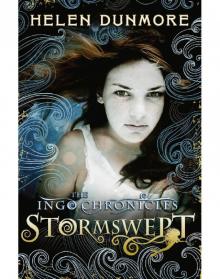 The Ingo Chronicles: Stormswept
The Ingo Chronicles: Stormswept The Deep
The Deep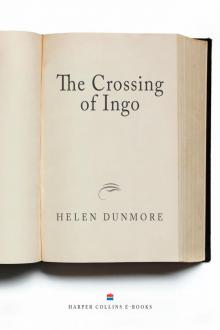 The Crossing of Ingo
The Crossing of Ingo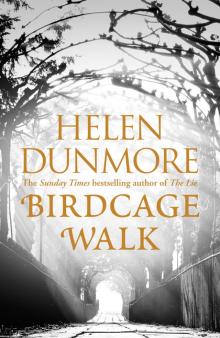 Birdcage Walk
Birdcage Walk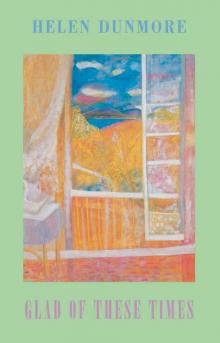 Glad of These Times
Glad of These Times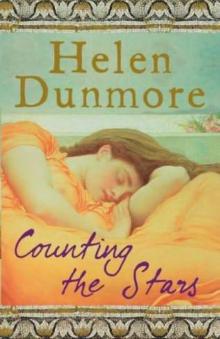 Counting the Stars
Counting the Stars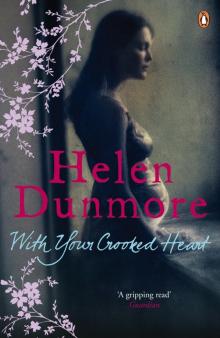 With Your Crooked Heart
With Your Crooked Heart Burning Bright
Burning Bright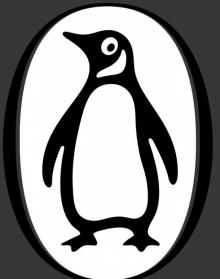 House of Orphans
House of Orphans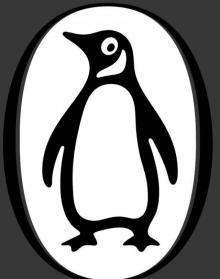 Mourning Ruby
Mourning Ruby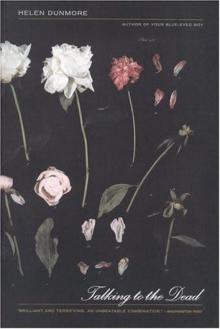 Talking to the Dead
Talking to the Dead Exposure
Exposure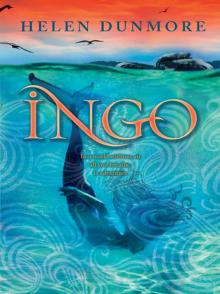 Ingo
Ingo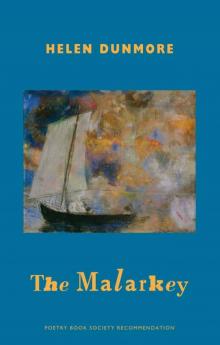 The Malarkey
The Malarkey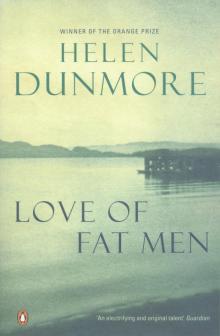 Love of Fat Men
Love of Fat Men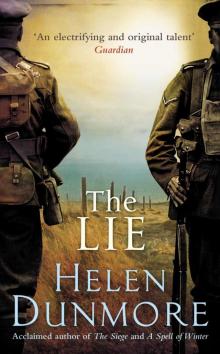 The Lie
The Lie The Siege
The Siege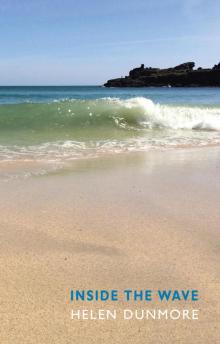 Inside the Wave
Inside the Wave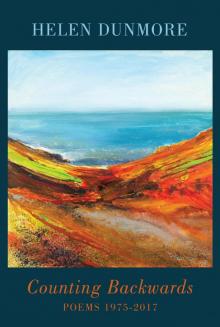 Counting Backwards
Counting Backwards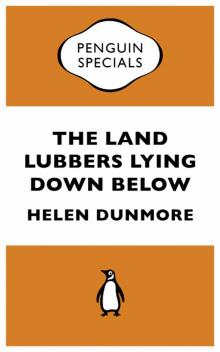 The Land Lubbers Lying Down Below (Penguin Specials)
The Land Lubbers Lying Down Below (Penguin Specials)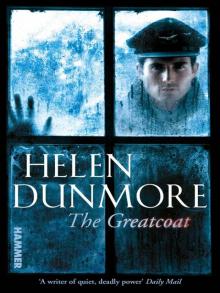 The Greatcoat
The Greatcoat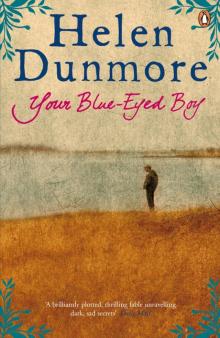 Your Blue Eyed Boy
Your Blue Eyed Boy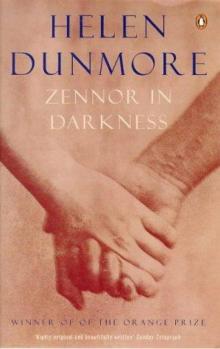 Zennor in Darkness
Zennor in Darkness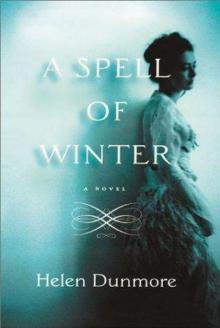 Spell of Winter
Spell of Winter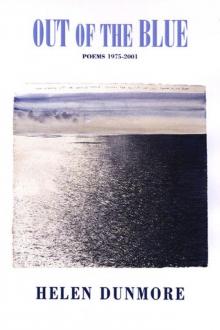 Out of the Blue: Poems 1975-2001
Out of the Blue: Poems 1975-2001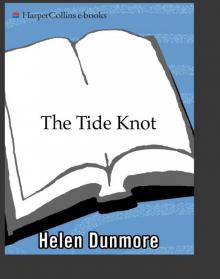 Tide Knot
Tide Knot The Betrayal
The Betrayal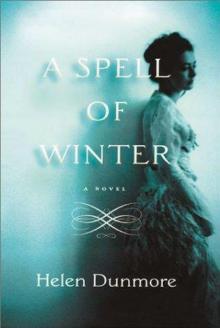 A Spell of Winter
A Spell of Winter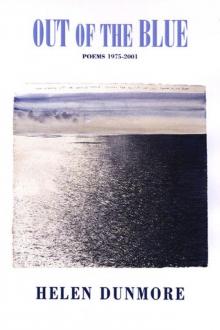 Out of the Blue
Out of the Blue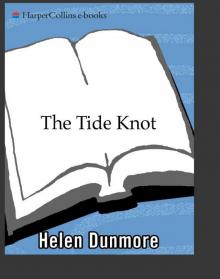 The Tide Knot
The Tide Knot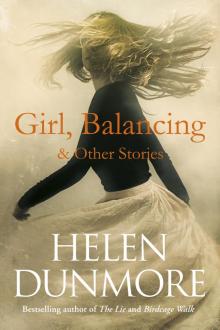 Girl, Balancing & Other Stories
Girl, Balancing & Other Stories Betrayal
Betrayal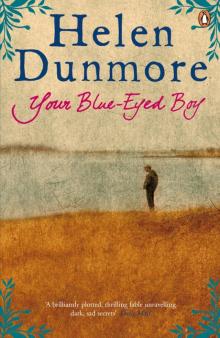 Your Blue-Eyed Boy
Your Blue-Eyed Boy